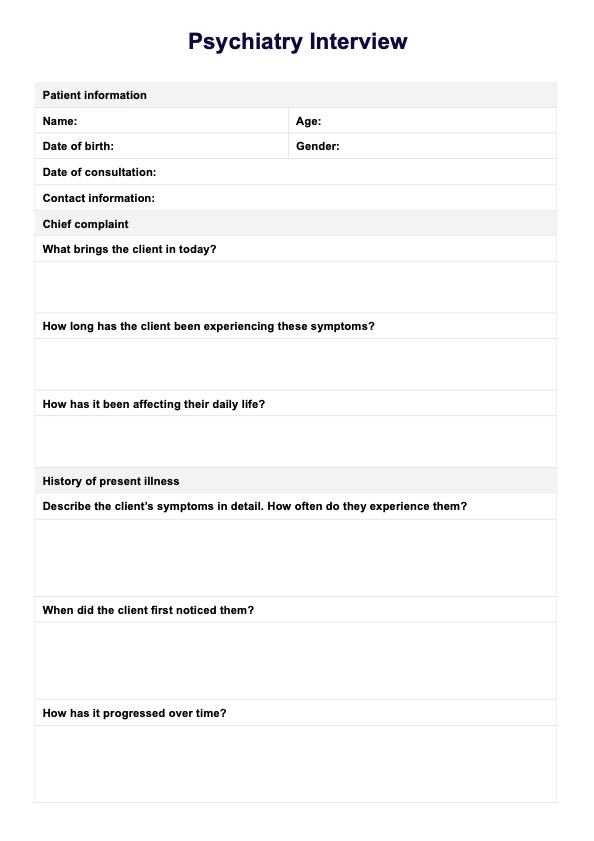To structure a psychiatric interview, begin by establishing rapport to create a comfortable environment for the patient. Then, gather information through open-ended questions that encourage the patient to share their experiences and feelings. The interview should be organized into sections, including the patient's presenting problem, psychiatric history, medical history, family history, and social history while allowing flexibility to explore relevant topics as they arise.

Psychiatry Interview Template
Our Psychiatry Interview Template provides a structured approach to conducting a comprehensive psychiatric evaluation. Download a free PDF now.
Psychiatry Interview Template Template
Commonly asked questions
The stages of the psychiatric interview typically include an introduction, where the clinician explains the purpose of the interview; information gathering, which involves asking about symptoms and history; assessment, where the clinician evaluates the information collected; and closing, where the clinician summarizes findings and discusses next steps or treatment options.
The psychiatry interview technique often employs active listening skills, empathy, and nonverbal communication to foster trust and encourage open dialogue. Clinicians may use specific questioning techniques, such as reflective questioning or summarization, to clarify and deepen understanding of the patient's concerns while ensuring that the patient feels heard and validated throughout the process.
EHR and practice management software
Get started for free
*No credit card required
Free
$0/usd
Unlimited clients
Telehealth
1GB of storage
Client portal text
Automated billing and online payments











